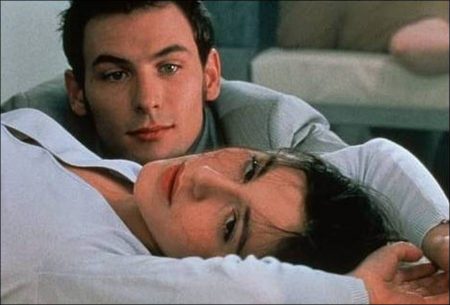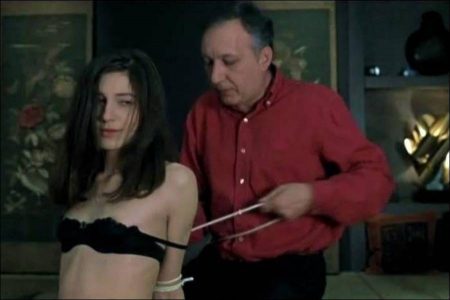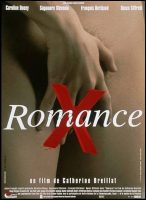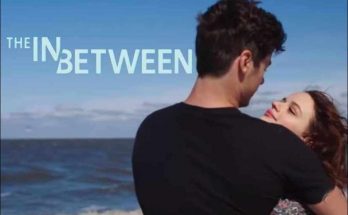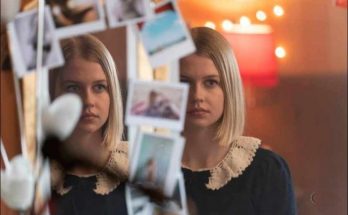Romance Movie Storyline. A young woman named Marie (Ducey) lives with her boyfriend, Paul (Stévenin), who refuses to have sex with her. She searches for intimacy beyond the bounds of traditional sexual limitations. She has a sexual relationship with Paolo (Siffredi), whom she meets in a bar. Her frustration also drives her to a series of relationships, until she engages in sadomasochism with an older man.
Romance (Romance X) is a 1999 French arthouse film written and directed by Catherine Breillat. It stars Caroline Ducey, Rocco Siffredi, Sagamore Stévenin and François Berléand. The film features explicit copulation scenes, especially one showing Ducey’s coitus with Siffredi. Romance is one of several arthouse films featuring explicit, unsimulated sex, along with The Brown Bunny (2003), 9 Songs (2004) and All About Anna (2005).
In an interview with The Post, Catherine Breillat appeared to confirm the rumors of actual on-set sex. “An actor never pretends,” she said. “At the same time, I’m not perverse. I don’t impose on my actors or actresses any more than is absolutely necessary. But I don’t pretend. I don’t simulate. The deal was, we’d go as far as we had to, as far as the film required.”
In Europe, Romance was shown in mainstream cinemas; in the United States, it was reduced to a mainstream-acceptable R rating, and the European original version is un-rated. In the UK, the BBFC passed the film uncut for cinemas, though home releases suffered a brief cut to an ejaculation shot.
In March 2004, the original version was broadcast, late-night on German public television. In Australia, the original version of Romance was broadcast uncut on the cable television network World Movies.[citation needed] The film was initially refused classification in Australia, before it was awarded an R18+ on appeal. It single-handedly paved the way for actual sex to be accommodated in the R18+ classification in Australia.
In Canada, particularly in Alberta and the Maritimes, the sexuality was seen as gratuitous to the film and it was given an A rating and XXX rating in those regions. In June 2008, in the Netherlands, the original version of Romance was broadcast on Dutch public TV by VPRO as one of a series of Erotica art house cinema.
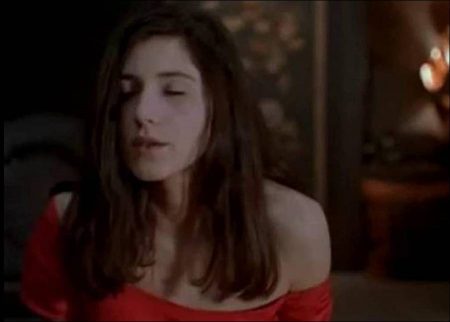
Film Review for Romance
An attractive couple dressed in white and beige sits at a café together, drinking coffee. The young woman has tears in her eyes; the young man appears sympathetic. They leave the café for a walk on the beach. Walking and talking, they move further from the camera, closer to the ocean. With their backs to us they seem completely absorbed in each other.
Turn off the sound on these early scenes in Catherine Breillat’s Romance and this is what we see – like the kind of gentle lover’s stroll we might encounter in a film by Éric Rohmer or on the pages of a glossy magazine. But turn the sound back on and it is a very different story. Sugary romantic imagery is subverted by dialogue that probes and deconstructs love and our ideas about what women want from it. Breillat’s Romance excoriates conventional ideologies of heterosexual romance through a key conflict over physical intimacy from which there will be no return.
The young couple – schoolteacher Marie (Caroline Ducey) and model Paul (Sagamore Stévenin) – are in crisis. After three months together, Paul no longer feels any physical desire for Marie, yet claims he loves her. He’s content to drink sake and read Bukowski alone at his favourite Japanese restaurant or watch bad television before sleeping. But for Marie, who loves Paul “madly,” sex is essential to her expression of love. She admits to clinging to him “like a leech.” Maries finds Paul’s refusal to touch her degrading, declaring in voiceover that, “a man who fucks a woman honours her.”
Is Romance a film about romance, as its title slyly hints, or is it about love, or exclusively about sex as its censorship controversy suggests?2 Does Breillat render sex and romance as adversaries in the story of love? Or is the film really full of fire and passion despite its detached surface? Part of its appeal is that it provides no easy answers to any of these questions. Romance is a film that thrives on ambiguity.
In mainstream cinema, narratives of love do not usually play out this way. They are constructed around traditional romantic notions of longing and mutual fulfillment. Everything happens for a reason. Men take the lead. Women lose agency, accept passivity. Sex happens without negotiation, the natural progression of romance into lust, with a couple in silent, symbiotic agreement about what they desire from each other’s bodies. Satisfaction guaranteed, no talk required.
Breillat’s vision of romance is darker, more anguished than that. Romance is as cerebral as it is carnal. Characters talk a lot. Marie, in particular, talks to Paul and her successive lovers, and talks to us, the audience, with her internal, externalised voiceover. Through her, Breillat’s sexual investigation emerges as one partly concerned with dissecting the idea of the couple, and what it means to be in one, from both a philosophical and sociological perspective. Specifically, Breillat exposes the romantic fallacy of this entity as a wholly self-contained one, able to satisfy every human need.
Romance cleaves conflict, becoming a prison for women and men alike, an illusory state, which stifles sex and eventually destroys love. Within this scaffold, Breillat ruptures established ideas about female sexuality, allowing it to be something more complex than male fantasies – on which so much of mainstream cinema is built – allow. At its most simple, there is a gender reversal of expectations about love and sex. For Paul, “there’s more to life than [sex].” He is bored with it (disinterested even when Marie tries to fellate him), and regularly refers to Marie’s sexual appetite as “disgusting.”
Paul exposes the fine line between men’s desire and fear of women’s bodies. In their early café conversation, he claims they have made love non-stop since they have been together. But Marie calls this an “exaggeration”, and later concludes that, “a man who cannot love me physically, is a pit of misfortune, an abyss of suffering.” Paul thinks love should render Marie chaste (she is dressed in white for much of the film), but it is a belief contrary to her conception of her own sexuality as a “hole, a pit” that needs filling. Marie is desperate for intimacy, empowered by masochism, and eventually comes to believe that “love between men and women is impossible,” “stupid,” and “a devious conflict.”
With Paul’s rejection, Marie seeks pleasure outside the bounds permitted by narratives of romance. She cheats. First there is Paolo (played by European porn star, Rocco Siffredi), with whom there is negotiation and openness. Then there is Robert (François Berléand), the headmaster at her school, who ties her up and opens her up to the possibilities of submission. And finally a stranger, who pays Marie, goes down on her, and then roughly penetrates her anally in a scene that straddles murky ground between consensual sex and something else. Love fails Marie and she descends into a sort of hell. 3 If romance has been punishing, sex becomes vengeance, a contest with Paul she refuses to lose.
Romance is not simply a film of unsimulated sex scenes, but a film about the integrity of sex to human identity, and how this is represented on screen. It’s a complex equation. Breillat films sex in a detached and clinical manner. There is little that can be described as conventionally erotic about it; her style analytical, not designed to arouse. What intimacy exists between Marie and her various lovers, as she tries to achieve “a pure, childish desire,” is brutal rather than tender. As Linda Williams observes, the film’s point here is not pleasure but “to show how short-lived and difficult such ‘pure’ desire is – indeed, how much work must be invested in its achievement.”4
Like all exemplary art, Romance fascinates and troubles in equal parts. But Breillat’s radical vision of sex is confronting, ultimately, not because of its visual explicitness but because of its pessimistic, antagonistic conception of heterosexual coupling. Women and men use each other; real intimacy seems impossible. Marie has a dark deliverance from her patriarchal prison. The film’s opaque ending sees her dressed in black with her baby in her arms – a possible burial fantasy of mourning for both Paul and her own delusions about love.
Romance (1999 – 2022)
Directed by: Catherine Breillat
Starring: Caroline Ducey, Sagamore Stévenin, François Berléand, Rocco Siffredi, Ashley Wanninger, Emma Colberti, Fabien de Jomaron, Roman Rouzier, Oliver Buchette, Carla, Pierre Maufront
Screenplay by: Catherine Breillat
Production Design by: Frédérique Belvaux
Cinematography by: Yorgos Arvanitis
Film Editing by: Agnès Guillemot
Costume Design by: Ann Dunsford
Set Decoration by: Alexis Forestier, Pierre Gerbaux, Julien Poitou-Weber
Art Direction by: Valérie Leblanc Weber
Music by: Raphaël Tidas, DJ Valentin
MPAA Rating: NC-17
Distributed by: Rézo Films
Release Date: April 17, 1999 (France), February 11, 2022 (United States)
Views: 436
